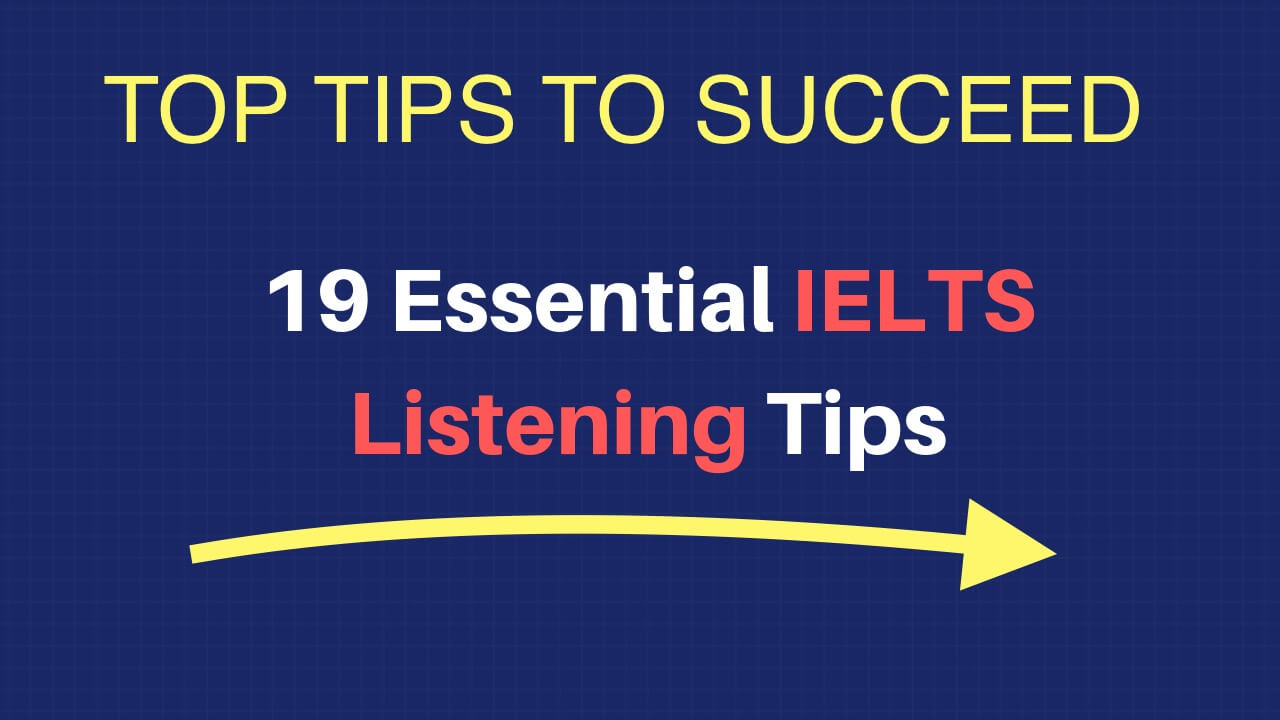Introduction
In the previous articles, I talked about the structure and format of the IELTS and how to prepare for it. I think it is time to start talking about the skills and tricks of the test. From now on, I am going to share with you a serial of articles about the top tips for the IELTS based on my own experience. Today, I will start with the listening section of the test.
Top Tips for the IELTS Listening Section
- Listen carefully to the introduction of
every question. This will give you useful information about the situation and the speakers.
- Use the time at the beginning and middle of each recording to look through the questions and think about the topic to familiarize yourself with the types of expected answers ; for example, a number, letter, word or time.
- Read the instructions for each task carefully. Remember to check the maximum number of words allowed. Be careful not to add any extra word or letter by mistake. Pay special attention when choosing between similar numbers or clock times.
- Write all your answers as you listen; remember, you will not be allowed to hear the recording a second time.
- Check if what you have written makes sense in the context.
- Pay attention to any examples that are provided.
- Keep to the word limit: if you are asked for ‘NO MORE THAN THREE WORDS’, for example, then do not write more.
- Try to answer all the questions, even if you don’t feel sure about an answer – you may have understood more than you think.
- Transfer your answers at the end of the test. You have 10 minutes for this, which is plenty of time.
- Write clearly when you transfer your answers. If an answer isn’t clear on your answer sheet, you will lose the mark.
- Check your spelling (and grammar, where necessary).
- Don’t worry if you have to cross out or change an answer.
- Don’t panic if you miss one question. Look ahead and concentrate on the next one.
- Don’t try to rephrase what you hear. Write down the words you hear which fit the question.
- Don’t write more than the maximum number of words or letters allowed for each answer.
- Don’t copy any words that were printed before or after the gaps on the question paper when you transfer your answers to the answer sheet.
- Don’t write more than one answer when only one is required. Even if one of your answers is correct, you will not receive a mark.
You don’t have to attend a preparation course, but many candidates find that doing so helps them improve their performance. If you would like assistance with test preparation, IELTS centres and language schools around the world offer IELTS preparation courses.
-
More samples of IELTS test material and information about the test are available from the following on the British Council website.




0 Comments